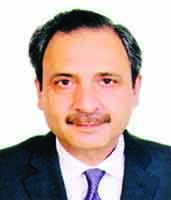
On this day in 1940, the historic Pakistan Resolution was adopted in Lahore, which culminated in the emergence of Pakistan as an independent and sovereign state on 14 August 1947. Since then, 23rd March is observed each year by the whole nation as Pakistan Day with great zeal and fervour.
We share the same hopes and aspirations of other nations. We strive to achieve economic progress and prosperity at home. We seek a stable and peaceful global and regional environment.
With Bangladesh, we enjoy a special relationship steeped in many affinities and bonds that exist between the people of the two countries.
It is in this sprit to facilitate people-to-people contacts that the High Commission is following a liberal visa policy to encourage visits of Bangladeshis from all walks of life to Pakistan. Our bilateral trade is approximately US$ 759 million, with a potential to increase manifold.
Pakistan is the third largest contributor of FDI in Bangladesh, after the UK and South Korea, accounting for an inflow of US$ 130 million approximately, in 2015.
The across the board consensus amongst Pakistani society against extremism has foster a new era of hope and optimism in Pakistan. Prime Minister Nawaz Sharif’s categorical statement that “the nation’s future lies in a democratic and liberal Pakistan, where the economic sector thrives and no one is left behind”, is a reaffirmation of this resolve.
Pakistan today enjoys a mature and inclusive democracy; an independent and assertive judiciary; a free media which has the liberty to question those in power and last but not the least, a vocal and vibrant civil society.
Pakistan’s economy has shown a marked recovery during the last two fiscal years and today, Pakistan is poised for an economic take-off. The improving security situation, promising economic indicators, and the establishment of China-Pakistan Economic Corridor (CPEC) offer many opportunities for the country of 200 million people, of which almost two-thirds consist of the youth.
CPEC is a trans-regional project that would benefit three billon people of the region through enhanced connectivity with other countries, and would play an instrumental role in integrating the whole region. The completion of the western and central routes would usher a new era of development and prosperity in Balochistan.
Sindh would be the largest recipient of energy projects where US$ 11.5 billion of the US$ 35 billion worth of energy schemes are being implemented under the CPEC. CPEC is a 15-year venture, expected to be completed by 2030, focusing on infrastructure development, Gwadar seaport, energy and industrial cooperation.
Alongwith the CPEC, the TAPI gas pipeline and Central Asia South Asia (CASA) -1000 power import projects would redefine cooperation in western Asia.
On the social front, the PM”s National Health Programme was launched in Islamabad where 1.2 million families living below the poverty line, would be getting best possible treatment at the government’s expense. The programme would benefit 3.2 million families living in Punjab, Balochistan and Federally Administered Tribal Areas (FATA). It would cover all diseases, ranging from cancer to heart by-pass.
Pakistan’s largest province in terms of population, Punjab, unanimously passed the Women Protection Bill against violence. It provides for a system for complaints, as well as penalties for offenders. All complaints would be decided within 90 days from the day of the receipt.
The Prime Minster has made a landmark commitment that Pakistan would double its expenditure on education from 2% to 4% of its GDP by 2018, entailing an increase US$ 4 billion.
Pakistan sees Bangladesh as a trusted partner in economic development and prosperity in our region. I take this opportunity to wish the people of Bangladesh continued progress and prosperity in the years ahead.
Shuja Alam
High Commissioner for the Islamic Republic
of Pakistan in Dhaka

